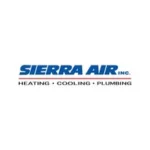Tips to Prevent Damage to Your AC
Thunderstorms bring winds that pose a moderate to high level of danger to people and property. What’s the best way to protect your system from severe weather conditions such as high winds?
- Cover your external unit – High winds are categorized as winds that exceed 58 MPH. As you can imagine (and may have experienced), strong gusts of wind can lift debris and cause indirect damage to property. Covering your condenser will better protect the more delicate parts of your HVAC system from stray twigs and other airborne debris.
- Strap down the condenser – Connecting your outdoor unit with straps reduces the chances of your system getting knocked over by debris.
Unfortunately, thunderstorms aren’t the only harsh conditions your HVAC system could experience during its lifespan.
Other Extreme Weather Conditions in Reno, Nevada
Wildfires are a fairly common occurrence thanks to our close proximity to inland California. Running your air conditioner during a wildfire can help to keep your indoor air quality clean — as long as you have recently changed your air filter and closed the fresh intake vents. Wildfires clear large swaths of land for another natural disaster — flash floods.
Flash Floods
Flash flooding happens without warning, which means you need to be prepared long in advance. Installing brackets above sea level or creating a raised platform to place your condenser atop is the best method of protecting your HVAC system from high water.
No matter what kind of HVAC service you require Sierra Air Inc is your team! We sweat the small stuff, so you don’t have to. Contact us 24/7 for emergency service at (775) 800-5500.




